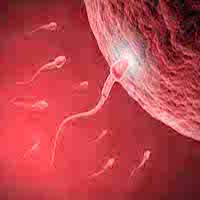Week one of pregnancy is the week of your last menstrual period before you become pregnant. It may be a little confusing to call week one of pregnancy the start of pregnancy when you are not even pregnant yet.
So if you’re not even pregnant, how can doctors call it week one of pregnancy? The thing is, it’s often difficult to determine the exact day you conceive. Menstrual cycles can vary and sperm can survive in a woman’s reproductive tract for up to five days.
Because pinpointing conception is difficult, most doctors calculate your due date based on the first day of your last menstrual period. The good news is, by the time you find out you’re pregnant, you are already a few weeks closer to your due date.
What’s happening with your body?
one, your body is preparing for possible conception in the upcoming weeks. Every month your body prepares for pregnancy. When you don’t conceive, the lining of your uterus sheds and menstrual bleeding starts. The monthly cycle that you have probably come to know well is actually pretty complex.
The right balance of hormones has to be produced and released each month. For example, your ovaries and adrenal gland produce estrogen, which causes the lining of the uterus to build up.
Progesterone, which is another important hormone, increases after ovulation. The increase in progesterone causes the lining of the uterus to become thicker to provide a nice, cozy home for a fertilized egg, in the event you conceive.
If you do not conceive, there is a drop in estrogen and progesterone, which causes the lining of the uterus to break down and shed. After your monthly menstrual bleeding, the process starts again.
What’s happening with your baby?
Things to keep in mind in week one:
If you have not gone for your preconception visit, you can still schedule an appointment with your gynecologist. During a preconception visit, your doctor will take a medical history and determine if you have any conditions that may require special consideration while you are pregnant. For example, if you are a diabetic or have a condition, such as lupus, you may need to be monitored a bit more closely.
It’s also important to discuss any medication or supplements you are taking. Your doctor may also ask you questions about your gynecological history, such as if you had any sexually transmitted diseases. It’s best to be honest so your doctor can provide you with the best advice concerning making sure you have a healthy pregnancy. A physical exam including a Pap smear and breast exam are also be performed at a preconception visit.
Since you are not yet pregnant, it’s a good time to consider any lifestyle changes you may need to make. Consider whether you have any unhealthy habits, which you should think about quitting. For example, since smoking and drinking too much alcohol can decrease how fast you conceive, you may want to limit both. Plus, once you are pregnant, you should consider kicking the habit completely.
It’s not too early to do everything you can to ensure you have a healthy baby. If you are not taking prenatal vitamins yet, you may want to consider starting even before you conceive. Folate is especially important in early pregnancy.
Folate helps prevent certain types of birth defects, such as spinal bifida. Keep in mind, your baby’s spine develops very early in pregnancy. In fact, in many cases, by the time you get a positive pregnant test, your baby’s spine has started to develop. That’s why it’s important to take folic acid even before you conceive, so it has time to build up in your system. 400 micrograms is the recommended dose.
